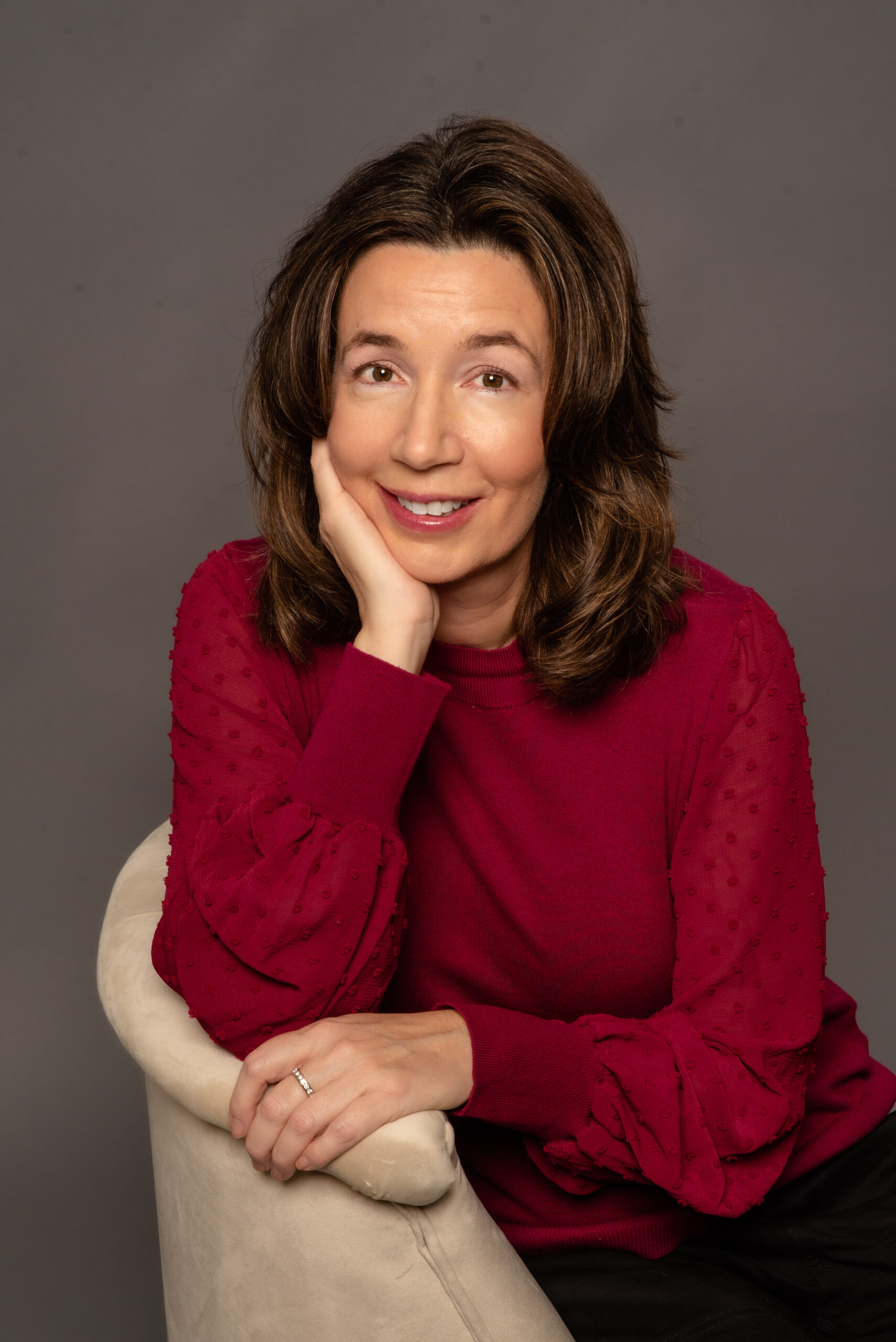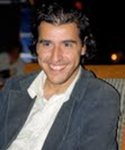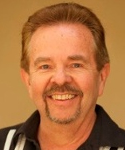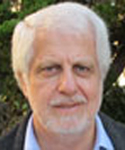M.A./Ph.D. Clinical Psychology
Now Accepting Applications for Fall 2026
The M.A./Ph.D. program celebrates its 30 year long tradition of offering clinical psychology doctoral education in depth psychological traditions, which emphasizes radical theorizing, in-depth relational clinical education, and engagement in issues of social justice and care. The program prepares psychologists through integration of diverse depth psychological traditions, human sciences scholarship, and community praxis.
Request More InformationM.A./Ph.D. in Clinical Psychology with Emphasis in Depth Psychology
About the Clinical M.A./Ph.D. Program
State Authorization: Click to View States Pacifica is Authorized to Enroll By Program.
Students are prepared for professional practice as scholar-practitioners whose clinical training is enhanced by scholarship and enriched by the analytical and interpretative skills developed through research. Our curriculum is designed to lead to licensure as a clinical psychologist (based on educational requirements for psychologists in the state of California).
Human Science Model
Our commitment to a human science model of psychology – a viable alternative to conventional psychology’s natural science approach – emphasizes meaning as the fundamental component of psychological life. This focus on human meaning, carried out in both qualitative research and clinical practice, yields an in-depth understanding of how things matter for people within their life-situations.
Acknowledging the cultural and historical character of meaning, human science psychology is deliberately affiliated with the humanities and cultivates multiple ways of knowing, such as imagination and meditative awareness, beyond the instrumental reason employed by the natural sciences. Accordingly, our curriculum is infused with the study of mythology, history, religion, philosophy, and the arts.
Depth Psychological Perspective
Within a human science model, the M.A./Ph.D. program focuses on the traditions of depth psychology. Found in multiple cultural contexts and perspectives, including the groundbreaking explorations of Freud and Jung, depth psychologies are distinguished by their recognition of a latent or unconscious dimension of psychological life. This unconscious element, the depth dimension inherent in human experience, is understood as essential to the transformative character of the therapeutic relationship.
Our program is inspired by psychoanalytic, Jungian, and existential-phenomenological perspectives in their historical and contemporary formulations, including archetypal, relational, and hermeneutic psychologies. Significant attention is given to dialogue with related disciplines such as multiculturalism, postmodernism, feminist theory, gender studies, indigenous psychologies, complexity theory, post colonialism, ecological studies, and Eastern thought.
“We need images and myths through which we can see who we are and what we might become.”
Clinical Training
By emphasizing the importance of scholarship in the education of psychologists, the program continues depth psychology’s longstanding approach to clinical practice. The clinical orientation that infuses our curriculum, facilitates the engagement of theory and research in addressing individual, community, and global concerns.
Students receive comprehensive clinical training that is informed by Jungian, psychoanalytic, and phenomenological psychologies as well as contemporary depth approaches to psychotherapy.
Clinical instruction emphasizes the importance of the therapeutic relationship, particularly transference and counter-transference dynamics, the significance of dreams, attachment and trauma in early development as well as developmental stages across the lifespan, individuation as a process of psychic transformation, and the cultural context of healing. A critical dialogue is maintained with contemporary developments in the field, such as neuroscience.
“Psychological life in its texture, structure and function is a metaphorical reality.”
Research
Our strong research curriculum is guided by depth psychology’s understanding of psychological phenomena. Hence, the courses focus on qualitative research methods that affirm the interpretative dimension of description as well as the unconscious dynamic between researcher and what is being researched. Student research encompasses the pursuit of knowledge, personal transformation, and the practice of social engagement.
Goal
Our goal is to prepare students to become constructively engaged in diverse clinical, academic, and community settings as researchers and clinicians who are grounded in deeply humane, theoretically sophisticated, and socially conscious approaches to clinical psychology.
The engaging beauty of the campus, an intense residency format & class cohort configuration all lend themselves to an experience of scholarly and personal development keenly attuned to Pacifica’s forty year mission of “caring for the soul in and of the world.”
Contact the Admissions Advisor
- Pandora Holmes, Executive Admissions Advisor
- Phone (call or text): 805-881-1637
- Email address: pholmes@pacifica.edu
Featured Blog Posts
- Dreams, Calling, Suffering, and Individuation: Finding Light in the Darkness
- A Second Ph.D.; An Alumna Story
- Pacifica’s Ph.D. Clinical Psychology Program; An Alumnus Story
- Birthing the Psyche: Taking Clinical into Depth Psychology, Part I
- Birthing the Psyche: Taking Clinical into Depth Psychology, Part II
- Journey Week 2024: The Clinical Experience at Pacifica
Clinical Brochure
Alumni Stories
Our goal is to prepare students to become constructively engaged in diverse clinical, academic, and community settings as researchers and clinicians who are grounded in deeply humane, theoretically sophisticated, and socially conscious approaches to clinical psychology.
Our alumni include:

Mark Montijo, Ph.D. (2006)
Mark Montijo is faculty at Pacifica in the Clinical Psychology Ph.D. as well as the Masters in Counseling Psychology and Integrative Therapy and Healing Process programs. He was first licensed in New Mexico as a Clinical Mental Health Counselor where he worked in partnership with Native American healers using traditional healing techniques. He then became licensed in California as a Marriage, Family and Child Counselor. While working for the U.S. Postal Service in several capacities, Mark investigated and resolved Equal Employment Opportunity complaints, created protocol for threat assessment, coordinated a regional Employee Assistance Program, and managed psychological services in the aftermath of workplace violence. Currently a healthcare mediator for a large HMO, Mark works with patients, families, physicians and staff involved in unexpected adverse medical outcomes. He is a passionate advocate for patient and family centered care, including briding physician-patient perspectives. He also maintains a private practice and delivers pro bono geropsychology services at a skilled nursing facility in Berkeley.

AnnaMarie Fidel-Rice, Ph.D., LPC (Colorado), (2003)
AnnaMarie Fidel-Rice is a Professor at Regis University in the Division of Counseling and Family Therapy where she teaches grief therapy from a depth perspective among many other courses. She maintains a pro bono psychotherapy private practice in Arvada, Colorado, and is author of the book The Alchemy of Grief: a depth psychological approach to grief. AnnaMarie has given numerous presentations on alchemy, loss, and grief as well as led retreats in Peru for celebrating the feminine.
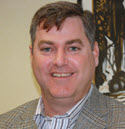
Doug Henry, Ph.D. (2003)
Doug Henry has worked in the inpatient psychiatric unit at Santa Barbara Cottage Hospital where he did evaluations, group, individual, and family therapy. He also did training and consulting work with the Santa Barbara Police Department (Hostage) Negotiation Team and the CIT – Crisis Intervention Team of the SBPD as well. He has also been lead assessor for Santa Barbara County department of Alcohol, Drug, and Mental Health Services (ADMHS), in the Calle Real Adult Outpatient Clinic. He currently works at the University of Pittsburgh Medical Center as Clinical Administrator for Child and Adolescent Psychiatry, where he has implemented funding from the Beckwith Institute’s Frontline Innovation Program to the Western Psychiatric Institute and Clinic (WPIC). He also also moderated Clinical Grand Rounds presentations on children and adolescents at the WPIC.
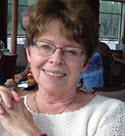
Marcia Dobson, Ph.D. (1998)
Marcia Dobson is a Professor at Colorado College, in the Classics Department. She has taught there for over 35 years. In addition to teaching regular Classics courses such as ancient Greek drama and language, Marcia also teaches classes on discovering the unconscious, life of the soul, and myth and meaning. Marcia initiated the psychoanalysis minor at Colorado College, and now teaches classes in contemporary psychoanalysis to students both at Colorado College and at the Chicago Institute for Psychoanalysis during summers. Her recent research and publications consider classical texts in their relationship to psychoanalytic thinking and theory. She is also an Associate Editor of the International Journal of Psychoanalytic Self Psychology.
Request Information
Learn MoreChair & Faculty
The Faculty members of Pacifica’s Clinical M.A./Ph.D. Psychology program bring a passion for education and a wealth of real-world experience into the classroom.
As leaders in their fields, the members of Pacifica’s faculty include authors of international acclaim, renowned lecturers, practicing psychologists, and certified analysts. Many of the faculty are also meditation teachers, social activists, artists, and philosophers.
All Clinical faculty members share a passion for transformative forms of education and are dedicated to working with adult learners. To learn more about the faculty in the M.A./Ph.D. Program in Clinical Psychology, read the individual descriptions below.
Program FAQs
What is distinct about doctoral education in clinical psychology at Pacifica?
Pacifica Graduate Institute has a 40-year long history of providing training in depth psychology within a human science model, and remains one of the few institutions in the world to offer degrees that bring together education in clinical psychology together with rich traditions of depth psychology, which draw from such fields as humanities, mythology, philosophy, cultural studies, and human sciences. In addition, Pacifica’s education emphasizes the dynamic contemporary visions of understanding human experience, which include somatic, spiritually-grounded, indigenous, multicultural, neuropsychological, and community-based approaches.
Does receiving a M.A./Ph.D. from Pacifica’s clinical psychology program meet the qualification needed to be licensed as a Clinical Psychologist in California?
Our curriculum is designed to lead to licensure as a clinical psychologist (based on educational requirements for psychologists in the State of California). In order to receive the California Clinical Psychologist’s license, students must also have met the post-doctoral clinical services hours and examination requirements of the State. As part of receiving the degree from our program, students are required to complete pre-doctoral internship hours that meet requirements of the California Board of Psychology. The eligibility requirements for the formal internship programs in California are set by varied organizations, including the California Psychology Internship Council (CAPIC) which governs many clinical sites that embrace depth psychological treatment modalities. Pacifica is a graduate school member of CAPIC, and students will be guided through the formal process of application to all such sites. Following receipt of their degree from Pacifica, students must follow state’s requirements, which include post-doctoral supervised clinical hours and passing scores on the national and state exams (EPPP and CPLEE). Applicants and students are responsible for following and adhering to the licensure requirements of other states or countries, in which they wish to reside and practice, which may differ from California requirements.
How long is the M.A./Ph.D. program?
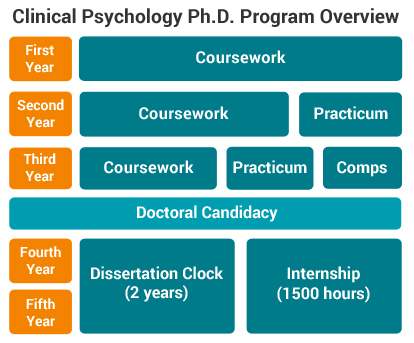
Students attend classes in the M.A./Ph.D. program for three years on a year-round basis (including summers). Each year classes are held during nine, four (4)-day sessions. One seven-day summer week occurs during the summer quarter. Students complete their dissertations following the three years of coursework. There is an eight-year time limit for completion of the degree program. Please see the graph below for a visual overview of the M.A./Ph.D. program.
What is the general format of classes?
The classes are a combination of lecture and discussion formats and occur on Pacifica campus. While faculty present lecture material, time is set aside for discussions and question and answer periods. Some of the classes include presentations by experts, experiential activities (e.g., rituals, somatic exercises), as well as time for processing the information as a group. The cohort system at Pacifica encourages a process of in-depth collaborative learning that integrates the multiple personal and cultural contexts affecting learning and guiding discussions.
How much work is required outside of class?
Class assignments consist of readings, posted reflections/discussions, exams, papers or projects. For every hour in class, at least three hours of academic work outside of class is expected. This time may include reading, reflections, research, and writing. Graduate study in general requires twenty (20) hours of study per week with an additional approximate 15 to 20 hours of practica per week in the second and thirds years. Dissertation and internship are undertaken after coursework is completed and comprehensive exams are passed.
Experiential clinical training at off campus clinical training sites is an essential part of the doctoral program. Students complete a minimum of 1,000 hours of practicum, 1,500 hours of internship, and 60 hours of personal therapy. The Director of Clinical Training works collaboratively with students to place them in practica in the beginning of their second year of academic study. Students receive supervision and are given feedback at off-site locations as well as during campus coursework.
Once students complete their coursework and practica and pass a comprehensive exam, students enter off-campus internships where they are also given supervision and feedback. Internships are completed in a multidisciplinary setting offering a variety of training experiences. To obtain pre-doctoral internships, students often compete in a state-wide or nation-wide competitive application process. However, state of California allows clinical training under a licensed psychologist as a psychological assistant to complete pre-doctoral internship hours required by the state of California toward psychology licensure. Training at culturally diverse sites is encouraged.
When do students have an opportunity to meet with faculty?
Each teaching faculty member holds office hours during the time that students are on campus as well as during specified hours during the week. These office hours schedules and sign-up sheets are made available during each learning session. Students are also assigned a core faculty advisor who connects with them regarding varied aspects of their academic and professional development. At the beginning of spring quarter, faculty advisors assess the progress that each student makes in the program as part of the student’s annual evaluations.
Where does a student complete the 2,500-hour practicum/internship requirement?
Students in the doctoral clinical program are required to accrue a total of 2,500 hours of approved and supervised clinical experience. These hours are obtained in two “tiers” of training: practicum (1000 hours required) and internship (1,500 hours required). Both levels of training are obtained at off-campus locations such as group private practices, clinics, hospitals, treatment centers, or other agencies, in which psychologists provide services. Practicum training is a lower level of training with more intensive and directive supervision, and is obtained during the second and third years of classes at Pacifica. The Clinical Training Handbook outlines the requirements for beginning clinical training. During the coursework on campus, the students participate in Thursday evening practicum seminars designed to ground their clinical training experience in small-group discussions, case conferences, and intensive supervision by faculty. In contrast to practicum training, internship training is a higher level of training with more independence and responsibility, and is undertaken after the student has completed all of the coursework and passed the comprehensive exams. The internship, in contrast to the practicum, is a summative and capstone training experience, in which the skills and the knowledge obtained through the coursework and the practicum experiences are exercised. All of the training activities described here are coordinated and supported by Pacifica’s Training Office, including the Training Coordinator and the Director of Clinical Training.
Can a student use past personal therapy hours to satisfy the 60-hour personal therapy requirement?
The personal therapy requirement is an integral part of the program, essential for the development of clinicians who utilize themselves as an instrument of healing of others. In addition, personal self-awareness is essential to other processes of being a student including conducting research studies with human participants or engaging in clinical and scholarly dialogues in the field that expand psychological knowledge. Therefore, the minimum of 60 hours of personal therapy must be completed while a student is enrolled in the program. These hours may be completed in individual, group, couple or family settings.
Scholarships
Education Assistance Offered to new and returning students based on extreme financial hardship and strong academic excellence. The award is $1,000 to be equally divided between four quarters. For students in the M.A. Counseling program enrolled in the 3rd year, the award is $500. This scholarship is not renewable and students must apply each academic year. Students enrolled in the dissertation phase are not eligible for consideration.
Jung/Freud Clinical Psychology Scholarship Offered to newly admitted students entering into either the Ph.D. Clinical Psychology or Psy.D. Counseling programs. Awards range $2,000-$3,000. The number and amount of individual awards is contingent upon the number of eligible applications received. This scholarship is renewable, provided recipients meet the required 3.5 cumulative grade point average.
Yellow Ribbon Matching Scholarship Pacifica Graduate Institute is pleased to announce that we have entered into an agreement with the Veteran’s Administration in support of veterans continuing their education under the Post 9/11 GI Bill. Pacifica has agreed to provide up to ten Yellow Ribbon Scholarships each year for qualifying veterans under the Post 9/11 GI Bill on a first-come first-serve basis. Students in the M.A. Counseling program will qualify for up to $6,500 per year, M.A. Engaged Humanities and Creative Life will qualify for up to $5,400 per year, and those in the doctoral programs will qualify for up to $7,800 per year.
Curriculum Overview
Clinical Psychology M.A./Ph.D. classes take place in four-day sessions (Thursday evening through Sunday afternoon) once each month during fall, winter, and spring. There is also one seven-day summer session each year. Between learning sessions, advising, mentoring, study and instruction continue through individual and group mentorship from faculty, web-enhanced learning, and cohort support groups.
First Year
- Professional and Ethical Development Seminar I - CL 755, 1 unit
- Professional and Ethical Development Seminar II - CL 756, 1 unit
- Professional and Ethical Development Seminar III - CL 757, 1 unit
- 1st Year Annual Assessment for Program Advancement - CL 758, 0 units
- Psychoanalytic-Based Psychotherapy I: Developmental Perspectives - CP 711, 2 units
- Jungian-Based Psychotherapy I: Personality Structure and Function - CP 810, 2 units
- History and Systems of Psychology - CP 700, 2 units
- Psychological Assessment I - CP 930, 2 units
- Psychological Assessment II - CP 931, 2 units
- Legal, Ethical, and Professional Practice - CP 832, 2 units
- Advanced Psychopathology I - CP 730, 2 units
- Biological Foundations of Human Behavior - CP 735, 2 units
- Research Designs and Methodology I: Qualitative, Quantitative, and Mixed Methods - CP 932, 2 units
- Research Designs and Methodology II: Qualitative Methods of Analysis - CP 933, 2 units
- Research Designs and Methodology III: Quantitative Design and Statistical Analysis - CP 926, 3 units
- History of Depth Psych & the Human Science Traditions - CL 819, 2 units
- Phenomenological Psychology: Theory and Practice - CL 917, 2 units
- Emergent Clinical and Social Theories in Depth Psychology - CP 799, 2 units
Second Year
- Supervision Practicum Seminar I: Assessment and Diagnosis - CL 759, 1 unit
- Supervision Practicum Seminar II: Assessment and Diagnosis - CL 760, 1 unit
- Supervision Practicum Seminar III: Assessment and Diagnosis - CL 761, 1 unit
- Psychoanalytic-Based Psychotherapy II: Personality and Psychopathology - CP 712, 2 units
- Jungian-Based Psychotherapy II: Affect, Mind, and Psyche - CP 811, 2 units
- Principles of Psychopharmacology - CP 873, 2 units
- Developmental Psychology Through the Lifespan - CP 830, 3 units
- Alcohol, Chemical Dependency, and Addictive Behaviors - CL 900, 2 units
- Cognitive Foundations of Human Behavior - CL 837, 2 units
- Affective Foundations of Human Behavior - CL 838, 2 units
- Advanced Clinical Research Approaches and Dissertation Development I - CP 961, 1 unit
- Depth Psychological Designs and Methods I - CL 928, 2 units
- Research Designs and Methodology III: Test and Measurement - CP 934, 2 units
- Indigenous Approaches to Psychology - CP 803, 1 unit
- Archetypal Psychology I: Social Basis of Human Experience - CP 840, 2 units
- Social Foundations of Human Behavior - CL 800, 2 units
- Emergent Clinical and Social Theories in Depth Psychology - CP 799, 2 units
- 2nd Year Annual Assessment for Program Advancement - CL 762, 0 units
- MA Qualifying Exam - CP 890, 0 units
Third Year
- Psychotherapy Practicum Seminar I: Effective Psychological Interventions - CL 763, 1 unit
- Psychotherapy Practicum Seminar II: Effective Psychological Interventions - CL 764, 1 unit
- Psychotherapy Practicum Seminar III: Effective Psychological Interventions - CL 765, 1 unit
- 3rd Year Annual Assessment for Program Advancement - CL 766, 0 units
- Post-Jungian Psychotherapy: Biological, Ecological, and Cultural Systems - CP 745, 2 units
- Theories of Group Psychotherapy - CP 719, 1 unit
- Archetypal Psychology II: Personality, Psychopathology, and Culture - CP 814, 2 units
- Advanced Psychopathology II - CP 731, 2 units
- Principles of Clinical Supervision and Consultation - CL 752, 1 unit
- Evidence-Based Psychotherapies - CL 912, 2 units
- Violence and Trauma: Developmental and Social Theories - CP 834, 2 units
- Advanced Clinical Research Approaches and Dissertation Development II - CP 962, 2 units
- Depth Psychological Designs and Methods II - CL 929, 2 units
- Advanced Clinical Research Approaches and Dissertation Development III - CP 963, 2 units
- Research Designs and Methodology IV: Advanced Qualitative Methods - CL 940, 2 units
- Gender and Human Sexuality - CP 901, 1 unit
- Psychotherapy with Diverse Populations - CP 845, 2 units
- Emergent Clinical and Social Theories in Depth Psychology - CP 799, 2 units
- Comprehensive Exam Portfolio – CP 989 - CP 989, 0 units
Requirements for Graduation
Degree Requirements for Graduation
- Students must complete a total of 105 quarter units to fulfill the unit requirement for the Ph.D. degree.
- A minimum grade of “B” is required in each completed course. A cumulative grade point average of 3.0 must be maintained.
- Students must meet attendance requirements as articulated in the Student Handbook.
- During the second year of coursework, students take a qualifying examination. An M.A. degree is awarded when the exam is passed and:
- 56 units of first and second year designated coursework have been successfully completed.
- Completion of 100 hours of practicum has been documented.
- Documentation of 30 hours of personal therapy has been submitted.
- In addition to completion of the M.A. degree requirements, in order to proceed with the third year of coursework, students must pass the Second Year Assessment for Program Advancement which encompasses a comprehensive review of coursework, annual evaluations, qualifying exam results (a minimum of 80% is required), advancement toward clinical practicum training goals, writing skills and readiness to conduct research.
- Students must successfully pass the Comprehensive Portfolio at the end of the third year.
- Students must submit and defend an original dissertation accepted by the faculty.
- Students are required to complete a minimum of 1,000 hours of practicum and 1,500 hours of internship..
- Students are required to complete a total of 60 hours of personal therapy.
- Students must comply with all the policies and procedures articulated in the Student, Dissertation, and Clinical Handbooks.
Clinical Training
A minimum of 1,000 hours of practicum and 1,500 hours of internship are required. Students must obtain Internship through a competitive application process. It is highly recommended that these internships be completed in a multidisciplinary setting offering a variety of training experiences. Pre-doctoral internship in clinical psychology is a supervised summative training experience, which integrates academic learning and previous applied clinical training at the practicum level. Upon completion of the academic program, comprehensive exam, dissertation, and 1,000 hours of practicum training, students in good standing are required to complete 1,500 hours of pre-doctoral internship in clinical psychology. Students from California may participate in the California matching system for internships through the California Psychology Internship Council (CAPIC). Candidates for internship must demonstrate readiness to apply for internship to the Director of Clinical Training. For a full description of all requirements, consult the current edition of the Pacifica Student Handbook, the Clinical Training Handbook, and the Dissertation Handbook.Faculty Mentorship
Each student is assigned a Faculty Advisor for mentorship throughout the program. Faculty Advisors meet regularly with their student advisees to monitor their academic performance, discuss research interests, oversee clinical development, assist with dissertation decisions, and provide personal and professional support.Preparation for Clinical Psychology Licensure
This curriculum is not intended to meet all the requirements of each state for licensure in clinical psychology. Students that seek licensure in California acquire regional accredited doctoral training making them qualified to pursue licensure as a clinical psychologist in the state of California (because requirements may change, students are responsible for maintaining awareness of licensure regulations by the state). Students may need to meet additional licensure requirements in their home states. Each student is responsible for determining and remaining current on their state licensure requirements.Enroll Today
Apply NowFor information regarding this program please contact the Office of Admissions at 805.879.7305, or at applicant@pacifica.edu.
All of Pacifica Graduate lnstitute’s degree programs are accredited by the Western Association of School and Colleges (WASC) and federal financial aid is available for those who qualify.
Pacifica’s doctoral programs in Clinical Psychology are not accredited by the American Psychological Association.



